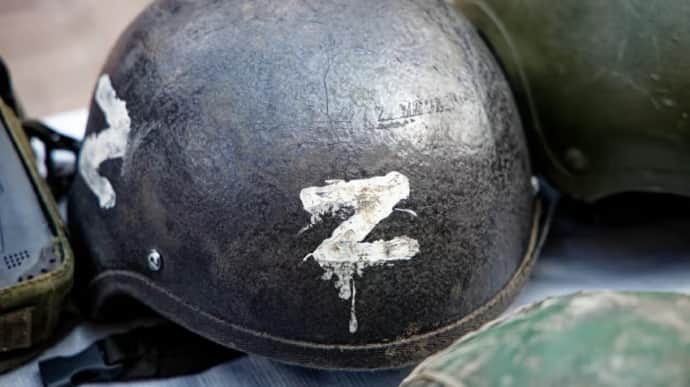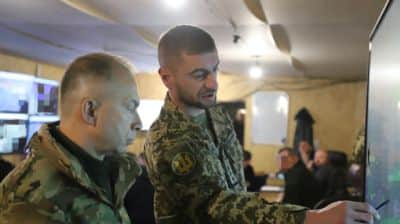Russia lost over 50 soldiers per sq. km during autumn advance – ISW

Analysts at the Institute for the Study of War (ISW) indicate that Russia lost about 53 soldiers per sq. km as its forces advanced through Ukrainian territory in the autumn of 2024.
Source: ISW
Quote: "The Kremlin is continuing to suffer significant manpower losses to make tactical advances in western Donetsk Oblast at the expense of Russia's ongoing war effort and the medium-term viability of the Russian economy."
Details: Analysts highlight that the UK Ministry of Defence (MoD), referencing data from the Ukrainian General Staff, reported on 5 December that Russia's average daily personnel losses in November 2024 reached a new historical peak, with 1,523 killed per day.
The UK MoD reported that for the first time on 28 November 2024, Russian forces suffered over 2,000 casualties in a single day.
Russian forces are estimated to have incurred a total of 45,690 casualties in November 2024. The UK Ministry of Defence highlighted that this marked the fifth consecutive month of rising Russian casualties.
Based on geolocation data, Russian forces advanced at a rate of around 27.96 sq. km per day in November 2024, capturing 839 sq. km in Ukraine and Russia's Kursk Oblast, where Ukraine is conducting an operation.
ISW previously reported that Russian forces suffered higher casualties in September and October 2024, with total losses amounting to approximately 80,110 troops. In exchange, they seized around 1,517 sq. km of territory in Ukraine and Kursk Oblast during those two months.
Thus, ISW analysts estimate that Russia lost approximately 125,800 troops during the period of intense offensive operations in September, October and November 2024 while seizing 2,356 sq. km of land.
According to the ISW, this means that there were approximately 53 Russian military deaths for every sq. km of Ukrainian territory seized during that time.
Quote: "Russia's constrained labour pool is likely unable to sustain this increased casualty rate in the medium-term, and continued Western military support for Ukraine remains vital to Ukraine's ability to inflict losses at this rate."
"The Kremlin's commitment to maintaining the theatre-wide initiative in Ukraine and continuing to advance in eastern Ukraine has created duelling demands on Russia's labour pool.
Additional efforts to increase Russian force generation rates risk further destabilizing the Russian economy as Russia continues to grapple with domestic labour shortages and rising inflation."
Details: Analysts point out that the Russians can either fight in Ukraine or work for Russia's domestic economy, but they cannot do both simultaneously.
Quote: "The Kremlin is unlikely to sufficiently meet its needs for labour in both the military and Russia’s domestic economy in the near future, and additional months of intensified offensive operations in Ukraine in 2025 and beyond will only further compound Russian resourcing dilemmas."
Details: Analysts also emphasise that US President Joe Biden's pledge to provide the remaining available US aid to Ukraine, along with the continued flow of regular Western military support, will be crucial for Ukraine's ability to keep defending itself against Russian offensive actions and inflicting unsustainable losses on Russian forces in 2025.
To quote the ISW’s Key Takeaways on 5 December:
- The Kremlin is continuing to suffer significant manpower losses to make tactical advances in western Donetsk Oblast at the expense of Russia's ongoing war effort and the medium-term viability of the Russian economy.
- Russia's constrained labour pool is likely unable to sustain this increased casualty rate in the medium term, and continued Western military support for Ukraine remains vital to Ukraine's ability to inflict losses at this rate.
- Russian Chief of the General Staff Army General Valery Gerasimov undermined the Kremlin's information operation to portray Russia's 21 November Oreshnik ballistic missile strike against Ukraine as a defensive response to the US permitting Ukraine to conduct strikes in Russia with US-provided ATACMS missiles.
- Russian-North Korean military cooperation will likely continue to intensify in the coming months following the formal commencement of their comprehensive strategic partnership agreement on 4 December.
- Chechen Republic Head Ramzan Kadyrov continues to publicly position himself as a defender of migrants and Russian ethnic minorities in opposition to other senior Russian security officials, suggesting that senior Russian officials may be increasingly divided over Russian President [sic] Vladimir Putin's efforts to promote an inclusive Russian civic nationalism that ensures interethnic and interreligious harmony in Russia.
- Ukrainian forces recently advanced in Kursk and northern Kharkiv oblasts, and Russian forces advanced in the Toretsk, Kurakhove, and Vuhledar directions.
- Russian forces are reportedly increasingly recruiting women for combat and logistics functions.
Support UP or become our patron!





